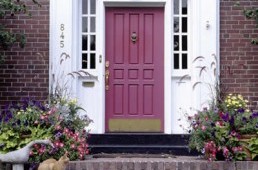
June 16, 2017 | by Katie Claflin
Categories: Affordable Housing, Homeownership
Loosely defined as the arrival of wealthier people in an existing urban district and the related increase in rents and property values, gentrification is one of the most hotly debated urban development topics.
The core issues of the debate are the positive and negative effects of gentrification on a community. As explained in this PBS article, gentrification often leads to reduced crime, new investment in buildings and infrastructure, and increased economic activity. But gentrification also drives up housing costs, forcing out established--often low-income and minority-- residents.
GOVERNING magazine reports that most major metro areas in Texas are experiencing some sort of gentrification. For example, 39.7% of census tracts in Austin are gentrifying, 21.5% in Fort Worth, 18.4% in Houston, 11.7% in San Antonio and 10.4% in Dallas. As housing prices in Texas increase, community leaders are scrambling to find solutions to protect long-term residents without undermining growth.
Community land trusts are becoming a popular solution to the issue of resident displacement. Under the community land trust model, a community-controlled organization retains ownership of a piece of land and sells or rents the housing (or structure) on that land to lower-income households. In exchange for purchasing a home at reduced price, the homeowners agree to resale price restrictions that keep the homes affordable permanently. The model allows homeowners to build some equity, while also ensuring that families at similar income levels can afford to purchase the home when an existing homeowner decides to sell.
There are currently nine community land trusts in Texas, operating in Austin, Houston and Amarillo, with several more in the works.
The National Community Land Trust Network provides some great information for community leaders interested in establishing a community land trust. TSAHC also operates a statewide land trust, which can expand affordability in changing neighborhoods and provide alternatives to traditional affordable housing.
In addition, TSAHC provides financing to support community land trusts. Through our Texas Housing Impact Fund, TSAHC recently provided a $2 million loan to support the construction of condos in east Austin as part of the Chestnut Neighborhood Revitalization Corporation's Community Land Trust, which was established by the City of Austin on June 8, 2017.
For more information on TSAHC’s land trust services and development financing opportunities, please contact [email protected].
On the House blog posts are meant to provide general information on various housing-related issues, research and programs. We are not liable for any errors or inaccuracies in the information provided by blog sources. Furthermore, this blog is not legal advice and should not be used as a substitute for legal advice from a licensed professional attorney.
TSAHC reviews all blog comments before they are posted to ensure a positive experience for our online community. Off-topic comments; hostile, derogatory or deliberately insulting comments; and comments specifically promoting goods and services will not be posted.
Approved comments will be published in their entirety. Personal information will not be removed unless it pertains to someone other than the person submitting the comment. For more information, please see our Comment Posting Guidelines.
To remove a previously submitted and published comment, please contact Anna Orendain at [email protected].
If you have a question regarding any of TSAHC's programs, please contact us.
